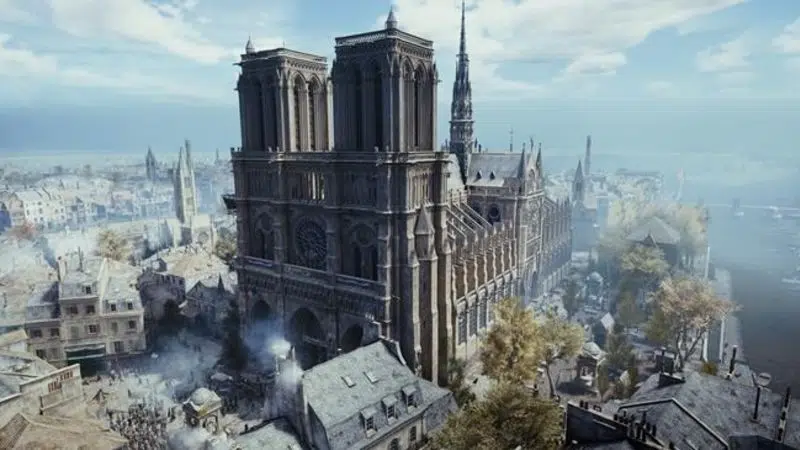
Ubisoft historian says company’s 3D Notre Dame a reminder of beauty during rebuild
MONTREAL — As the fire-gutted Notre Dame Cathedral in Paris faces years of reconstruction, a Montreal-made video game may provide some comfort for those longing to revisit every inch of the church, from the soaring spire and towers to the cavernous vault.
Artists and historians working to create the 2014 game “Assassin’s Creed Unity” spent 14 months combing through photos, videos, and architectural plans to create a digital model so realistic that some have speculated it could help to guide the reconstruction of the 12th century cathedral.
Ubisoft historian Maxime Durand said that while he doubts the company’s digital plans will be needed, he hopes the game can still help the renovation in a small way, if only by reminding people of the structure’s beauty.


